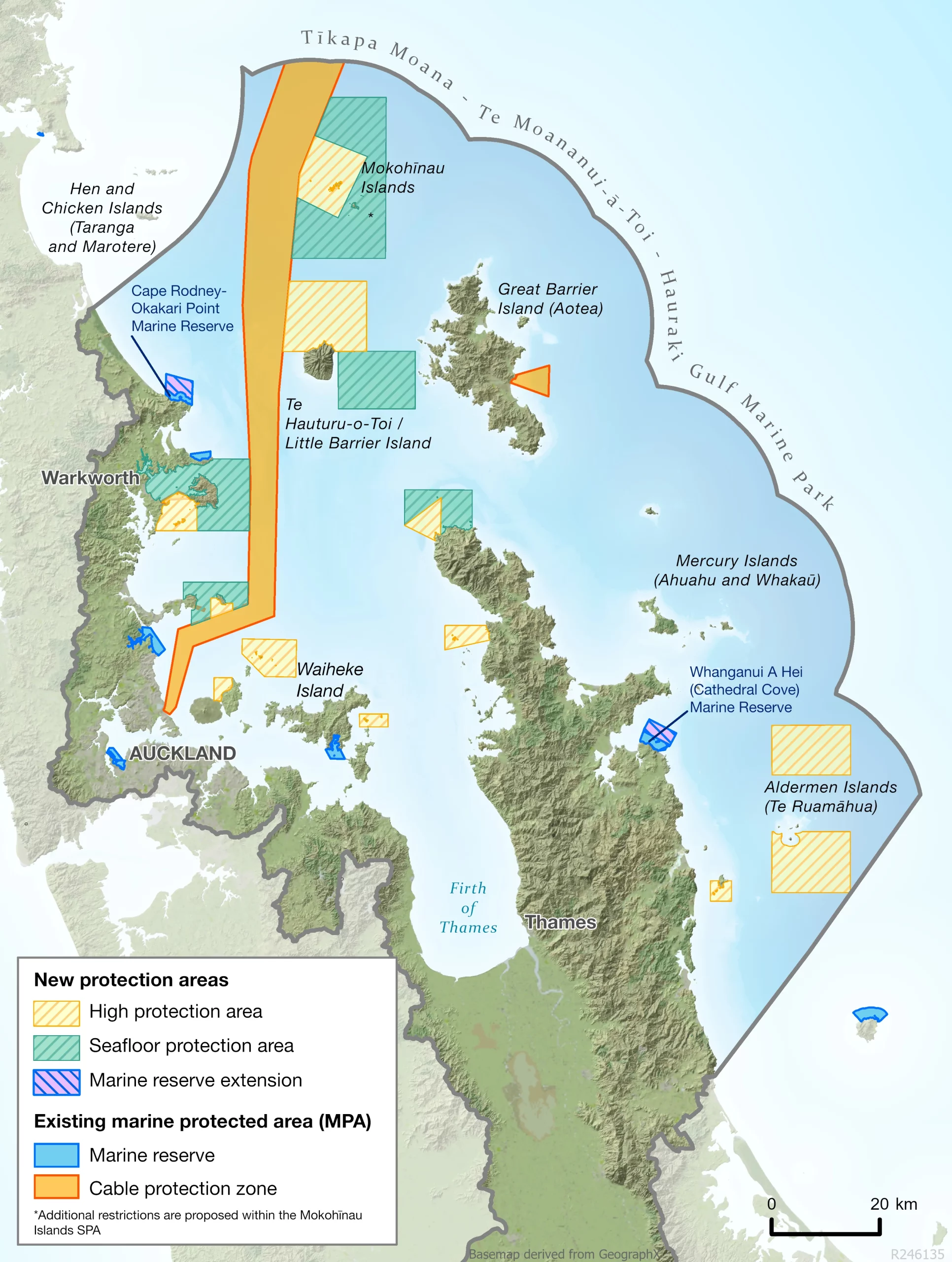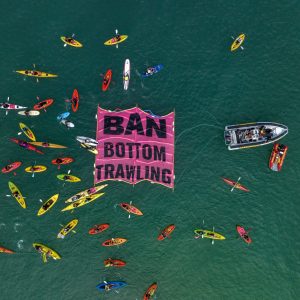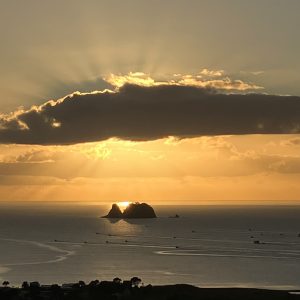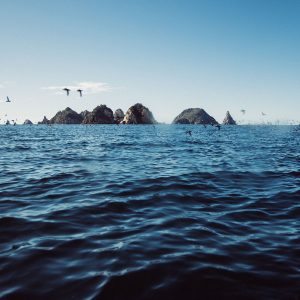In good faith over the past decade we have engaged in discussions about improving the Hauraki Gulf Marine Park environment. We’ve advocated for a ban on bottom trawling, dredging and seining. The Park also needs to be designated as a separate fisheries management area so fish populations can be restored to more natural levels.
After all, the purpose of the Park is to both sustain the life-supporting capacity of the marine ecosystems, and provide benefits for the community surrounding the Park.
Fisheries NZ recently consulted on a draft Fisheries Plan. This was the prime opportunity to give effect to the government’s vision of precautionary management and “ensuring the long-term health and resilience of ocean and coastal ecosystems, including the role of fisheries”.
Finally, a plan to integrate fisheries management and marine protection. Not so.
We’ve already written to the Minister objecting to the lack of measures in the final Plan to ban destructive, bulk harvesting fishing methods within the Park.
Not only that, it’s totally unreasonable to have a separate process to debate where trawling will be permitted and how big those ‘corridors’ may be, and a further process to discuss marine protected areas (MPAs).
The Minister of Conservation has submitted a Bill to Parliament seeking 19 new MPAs, yet there are no measures to mitigate the fishing effort that will be displaced into Northland, Coromandel, and Bay of Plenty waters.
A big reason why there is no integration between fisheries management and MPAs is because the Quota Management System grants entitlements to quota owners who control where and how much fish is taken. Without a separate management area 100% of the TACC could be taken from within Park boundaries, with no limits of effort and few controls on how that fish is harvested.
We’re being held to ransom by an outdated Quota Management System and a lack of Ministerial control, meaning only changes agreed by quota owners and officials can and will be implemented.
Rachel Brooking, in her Ministerial speech to the Seafood New Zealand annual conference, assured attendees that the decision to allow trawling in ‘corridors’ is “based on scientific advice about the best way to protect the environment”. We’ll be asking the Minister for a copy of that advice as our science team is not aware of any evidence that demonstrates how bottom trawling contributes to protecting the environment. Quite the contrary.
This outcome just reaffirms further concerns that any attempts to restrict commercial fishing will trigger a contemporary breach of the Treaty Settlement, and that threat alone is enough to ensure governments turn away from fisheries reform, even though it is inevitable.
Our Rescue Fish policy is an ambitious, workable alternative to the status quo that seeks to generate more fish in the water for now and in the years to come.





